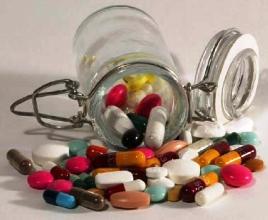 Drug price regulator National Pharmaceutical Pricing Authority has denied a price rise for some imported products of Sanofi, Novartis, and Allergan.
Drug price regulator National Pharmaceutical Pricing Authority has denied a price rise for some imported products of Sanofi, Novartis, and Allergan.
In a meeting earlier this month, the regulator rejected price revision applications for Sanofi’s monocomponent insulin Lantus, Novartis’ Vitalux Plus TR tablets and Allergan India’s Pred Forte, an official said.
“We have retained the existing prices of these imported products because these companies could not justify a required price increase.
"We believe the landed cost remains the same. Even if it has increased, only the margins would shrink a little. So, there is no need for a price revision,” the official told Business Standard.
According to the order issued by NPPA, the price of a 3-ml cartridge of Lantus 100 IU/ML is fixed at Rs 474.62, whereas a bottle containing 30 tablets of Novartis’ Vitalux Plus will continue to cost Rs 268.48 and a 10 ml vial of Allergan’s eye-drop Pred Forte will be priced at Rs 89.41.
Vitalux Plus is a specially-tailored combination of vitamins and minerals to maintain healthy eyes.
Currently, NPPA directly regulates prices of 74 bulk drugs and formulations, containing one or more of these bulk drugs.
While the regulator caps the prices of such medicines, pharmaceutical companies manufacturing or selling these medicines have to approach NPPA for any price revision.
For indigenously manufactured medicines, the ceiling
But for imported products, the regulator considers the landed cost declared by companies and allows a margin of up to 50 per cent to cover selling and distribution expenses, including interest and importers’ profit.
For all other medicines, firms are allowed to increase prices by up to 10 per cent annually, but for any hike beyond that, companies are required to seek permission from the regulator.
Beside the three imported products, the regulator has also capped prices of various new formulation packs introduced in the market, the official said.
In all, NPPA has considered a total of 42 cases for price revision in its meeting last week, including monocomponent insulins, multi-vitamins and eye drops.
The official also said the government was soon going to notify new Drugs Price Control Order, which will be aimed at implementing the recently approved new pharmaceutical pricing policy.
Once the new DPCO comes in place, as many as 348 essential medicines will fall under price control, increasing the span of government’s regulation to 30 per cent of all medicines in the country from 17-18 per cent currently.
“The notification of the new DPCO is expected anytime now. Once the DPCO is notified, NPPA will have to make changes in its provisions accordingly and issue fresh pricing orders,” the official said.
The new set of prices will be capped based on arithmetic average of all drugs in a particular segment with more than one per cent market share.












 © 2025
© 2025